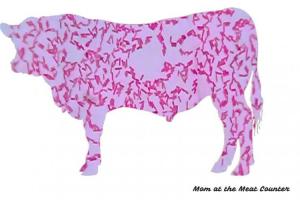Antibiotics & adapting to a new age of total animal health
Just as the stone age didn’t end overnight, neither will the antibiotic age, but we are entering a new era, says our friend Dr. Janeal Yancy, meat scientist and blogger at Mom at the Meat Counter.
Last month, I attended the Alltech ONE ideas conference. Alltech is a global company that produces lots of different products that may be used in many segments of agriculture. Every year, they host a group of bloggers to their conference and ask us to write about what we learned. This was my fourth year to attend, and I would love for you to see what I’ve learned at previous Alltech conferences.
This year, several of the sessions I attended covered the topic of antibiotics. Alltech is a forward-thinking company that is working to reduce the use of antibiotics in food production. They offer feed supplements that farmers can use to keep their animals healthy and productive rather than using antibiotics.
There were also several discussions about sustainable energy and the use of fossil fuels. During one of those discussions, the speaker, Ramez Naam, shared a quote from a former oil minister of Saudi Arabia.
He said, “The stone age came to an end, not because we had a lack of stones, and the oil age will come to an end not because we have a lack of oil.”
That discussion was about oil and energy, but I think that the premise can be applied to antibiotics.
Agriculture has changed a great deal in the past 6 decades. Our population is growing at a staggering rate, and farmers have had to adapt to meet the demands for food in our world. Getting to this point in agriculture has taken lots of tools and one of those tools has been and still is antibiotics.
I have written about antibiotics before. People have trouble understanding the use of antibiotics in food production; the fact that some bacteria adapt to become resistant to them, and that farmers use antibiotics to help keep their animals healthy and are careful to treat their animals in such a way that antibiotic residues don’t end up in our meat. Farmers and consumers have concerns about bacteria becoming resistant to antibiotics, and, in food production, antibiotics are at the front of everyone’s mind. We have to remember that the Stone Age didn’t end overnight. People slowly figured out new and more efficient ways of doing things. They found new materials and new ways to use old materials. Then, their ideas spread around the world.
We can’t expect the use of antibiotics to end overnight either, but things are happening quickly. Farmers are using a whole-systems approach to improve animal health. Meanwhile, animal scientists are figuring out new ways to help farmers produce healthier animals without the use of antibiotics or with a vastly reduced use of antibiotics.


